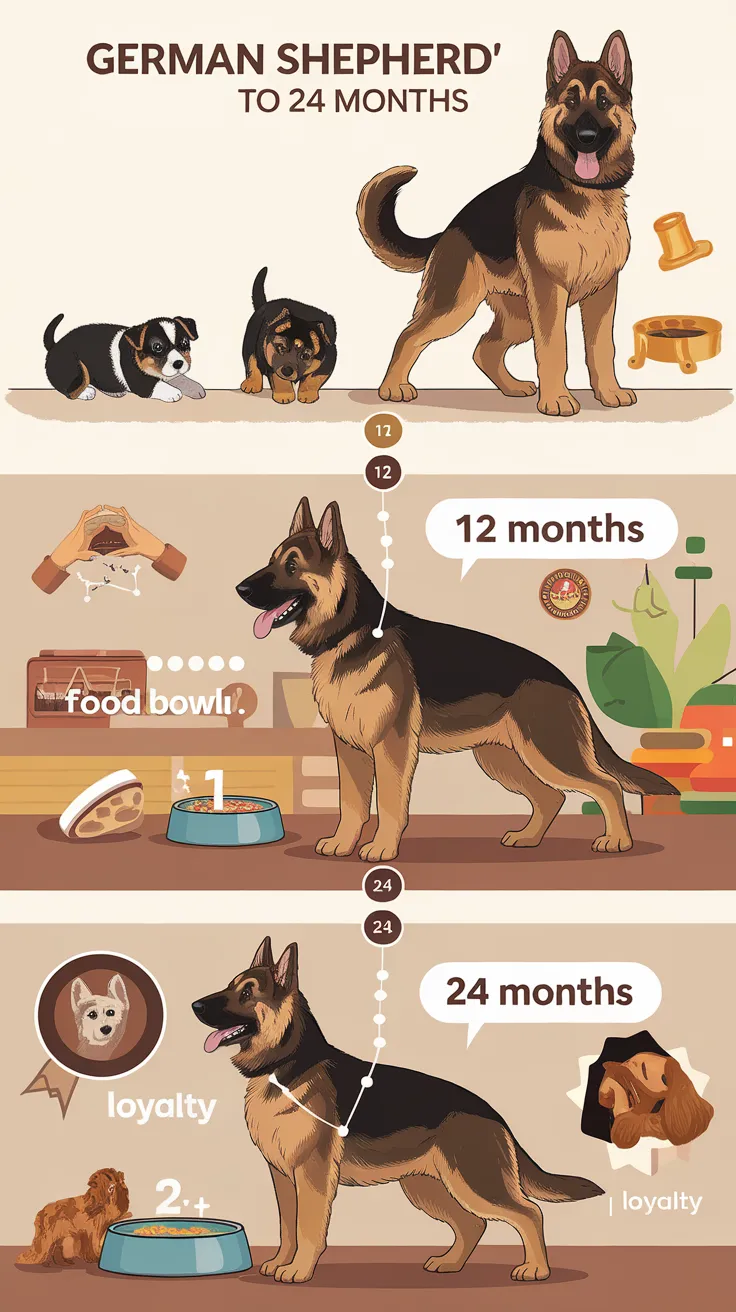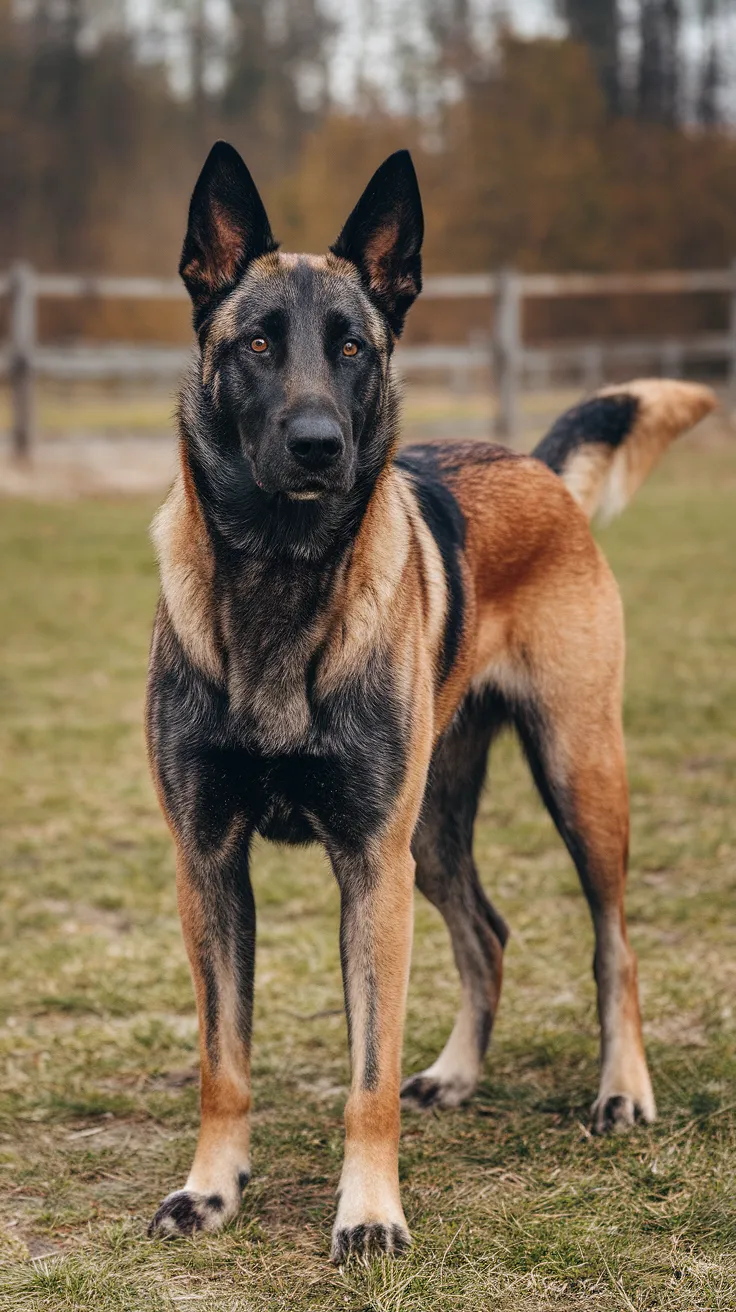Why Is My German Shepherd So Skinny? Discover the Hidden Reasons
If your German Shepherd is skinny, it can be concerning. You might wonder why your dog isn’t gaining weight.
A skinny German Shepherd may have underlying health issues. It could be due to diet, exercise, or medical conditions. German Shepherds are known for their lean bodies, but there’s a difference between lean and underweight. Understanding why your dog is skinny is important for its health.
This blog will explore the common reasons behind a skinny German Shepherd. We’ll discuss diet, exercise, and potential health problems. By the end, you’ll have a clearer idea of what might be causing your dog’s weight issue. Let’s dive in and ensure your furry friend stays healthy and happy.
Common Causes Of Weight Loss
Is your German Shepherd looking thinner than usual? There are several reasons why this might happen. Understanding these common causes can help you address the issue and ensure your dog stays healthy and happy. Let’s explore some of the most common causes of weight loss in German Shepherds.
Poor Diet
A poor diet is a major cause of weight loss in German Shepherds. Dogs need a balanced diet with the right nutrients. If their food lacks essential vitamins and minerals, they may lose weight. Make sure to feed your dog high-quality, nutritious food. Avoid giving them too many treats or human food. These can lead to weight issues and other health problems.
Insufficient Exercise
German Shepherds are active dogs. They need regular exercise to maintain a healthy weight. Without enough exercise, they can become underweight. Daily walks and playtime are crucial for their well-being. Ensure they get at least one hour of physical activity each day. This will help them stay fit and healthy.
Health Issues To Consider
Is your German Shepherd looking thinner than usual? Several health issues can cause weight loss in dogs. It’s crucial to identify these issues early and seek appropriate treatment. Let’s explore some common health concerns that might explain why your German Shepherd is so skinny.
Parasites And Worms
One of the most common reasons for a skinny German Shepherd is parasites and worms. These pests can steal nutrients from your dog’s body, leading to weight loss. Common parasites include:
-
Roundworms
-
Tapeworms
-
Hookworms
-
Whipworms
Symptoms of a parasitic infection may include:
-
Diarrhea
-
Vomiting
-
Bloated abdomen
-
Lethargy
Regular deworming and vet check-ups can prevent and treat these issues. Always consult your vet if you suspect a parasitic infection.
Gastrointestinal Problems
Gastrointestinal problems can also cause weight loss in German Shepherds. These issues affect the dog’s ability to digest and absorb nutrients properly. Common gastrointestinal problems include:
-
Inflammatory Bowel Disease (IBD)
-
Gastroenteritis
-
Food allergies
-
Pancreatitis
Symptoms of gastrointestinal problems may include:
-
Chronic diarrhea
-
Vomiting
-
Loss of appetite
-
Abdominal pain
Proper diagnosis and treatment are essential. Your vet may recommend dietary changes or medication to manage these conditions.
Nutritional Deficiencies
Is your German Shepherd looking too skinny? Nutritional deficiencies might be the reason. Dogs can lose weight quickly When they don’t get the right nutrients. Understanding what nutrients they lack can help you address the issue.
Lack Of Protein
Protein is essential for muscle growth and energy. If your German Shepherd lacks protein, it might look skinny. Dog food with high protein levels can help. Check the ingredients on your dog’s food. Ensure it has meat as the first ingredient. This ensures the food is rich in protein.
Vitamin And Mineral Imbalances
Vitamins and minerals are crucial for a healthy body. Without them, dogs can become underweight. Calcium, for example, strengthens bones. Iron helps with red blood cells. A good dog diet should have balanced vitamins and minerals. If you suspect an imbalance, consult your vet.
Psychological Factors
Understanding why your German Shepherd is skinny can be challenging. Beyond physical health, psychological factors often play a crucial role. Anxiety, stress, and environmental changes can impact your dog’s weight. Recognizing these factors can help you address the underlying issues and ensure your dog maintains a healthy weight.
Anxiety And Stress
Anxiety and stress can significantly affect your German Shepherd’s appetite and eating habits. Dogs experiencing high levels of anxiety may show a decreased interest in food. This can lead to weight loss over time.
Signs of anxiety in dogs include:
-
Excessive barking or whining
-
Pacing or restlessness
-
Chewing or destructive behavior
-
Trembling or shaking
Addressing anxiety involves identifying triggers. Common triggers include loud noises, separation from owners, or new environments. Reducing exposure to these triggers can help. Providing a calm and secure environment can improve your dog’s overall well-being.
Changes In Environment
German Shepherds are sensitive to changes in their environment. Moving to a new home, adding new family members, or even changing routines can cause stress, which can lead to a loss of appetite.
To help your dog adjust to changes, consider the following:
-
Maintain a consistent feeding schedule
-
Create a comfortable space for your dog
-
Introduce new family members or pets gradually
-
Keep familiar items, such as toys or bedding, accessible
A stable environment can make a big difference. This will help your German Shepherd feel secure and maintain a healthy weight.
Role Of Genetics
Genetics significantly affects your German Shepherd’s overall health and appearance. Understanding the genetic factors can help you determine why your dog might be skinny. Certain traits and conditions are inherited, which can affect their weight and build.
Breed-specific Traits
German Shepherds are known for their athletic build and high energy levels. This breed often has a naturally lean physique. Their genetics make them well-suited for tasks that require agility and endurance. Here are some breed-specific traits that might contribute to a lean appearance:
-
High metabolism: German Shepherds often have a faster metabolism, which helps them stay active and energetic.
-
Muscle structure: They have a strong, muscular build that sometimes makes them appear thinner.
-
Activity level: Their physical activity needs can keep them leaner than less active breeds.
Inherited Conditions
Some German Shepherds inherit conditions that affect their weight. These conditions might require special attention and care. Here are a few common inherited conditions:
|
Condition |
Effect |
|---|---|
|
Exocrine Pancreatic Insufficiency (EPI) |
This condition affects the pancreas, making it difficult for the dog to digest food properly. As a result, the dog might become skinny. |
|
Inflammatory Bowel Disease (IBD) |
IBD can cause chronic inflammation in the digestive tract, leading to poor nutrient absorption and weight loss. |
|
Hypothyroidism |
This thyroid condition can slow down metabolism, but it can also cause weight loss in some cases. |
If your German Shepherd is skinny, consider these genetic factors. Consulting with a veterinarian can help you address any underlying issues.
Evaluating Your Dog’s Diet
Evaluating your German Shepherd’s diet is crucial if your dog looks too skinny. The diet impacts their health and weight directly. Let’s explore the essential factors to consider.
Quality Of Food
The quality of your dog’s food matters significantly. High-quality dog food includes essential nutrients, including protein, which should be the main ingredient. Avoid foods with fillers like corn or soy. Check the labels for real meat sources. Vitamins and minerals are also important for maintaining weight. A balanced diet supports overall health.
Feeding Schedule
Feeding your dog on a regular schedule is key. Consistent meals help maintain their metabolism. Puppies need to eat more frequently, and adult dogs typically need two meals a day. Avoid free-feeding, as it can lead to overeating or undereating. Stick to a routine to help your dog gain weight healthily.
When To See A Veterinarian
German Shepherds are known for their strong and athletic build. Sometimes, they may appear skinnier than usual. While this can be normal, there are times when you should seek professional help. Understanding when to see a veterinarian is crucial for your dog’s health.
Signs Of Serious Issues
Weight loss without a clear reason can be a red flag. If your German Shepherd is eating well but still losing weight, it might be time to worry. Other signs include lethargy, vomiting, diarrhea, and a dull coat. Changes in behavior or appetite are also concerning. Watch for any signs of pain or discomfort. These symptoms can indicate underlying health problems.
Diagnostic Tests
The vet will perform several diagnostic tests to identify the issue. Blood tests can reveal infections, organ problems, or metabolic disorders. Urine tests help in diagnosing kidney issues. Fecal tests are necessary for detecting parasites. Imaging tests like X-rays or ultrasounds might be needed. These tests provide a clear picture of your dog’s internal health. They help the vet to make an accurate diagnosis.
Effective Weight Gain Strategies
Is your German Shepherd looking too skinny? This can be concerning for any dog owner. Understanding effective weight gain strategies can help your furry friend reach a healthy weight. Here are some practical tips to consider.
High-calorie Diets
A high-calorie diet can aid in weight gain for your German Shepherd. Focus on foods rich in protein and fat. These nutrients help build muscle and increase energy levels.
-
Choose high-quality dog food with higher calories.
-
Add cooked meats like chicken or beef to their meals.
-
Include healthy fats such as fish oil or coconut oil.
Always consult your vet before making significant changes to your dog’s diet.
Supplemental Feeding
Supplemental feeding can ensure your dog gets enough calories. You can add extra meals or snacks to their routine.
-
Offer smaller, more frequent meals throughout the day.
-
Use nutrient-dense snacks between meals.
-
Mix in high-calorie supplements recommended by your vet.
Keep track of your dog’s weight and adjust the feeding plan as needed.
|
Food Item |
Calories per Serving |
|---|---|
|
Cooked Chicken |
150 |
|
Beef |
250 |
|
Fish Oil |
120 |
Including these items in your dog’s diet can help boost their calorie intake.
Effective weight gain strategies can help your German Shepherd stay healthy and energetic. Always monitor their progress and make adjustments as needed.
Frequently Asked Questions
Why Is My German Shepherd So Skinny?
A skinny German Shepherd might be due to inadequate diet, parasites, or underlying health issues. Consult your vet for a thorough examination and proper guidance.
How Can I Help My Skinny German Shepherd Gain Weight?
To help your German Shepherd gain weight, feed high-quality, nutrient-dense food, increase meal frequency, and consult your vet for personalized advice.
What Should I Feed A Skinny German Shepherd?
Feed your skinny German Shepherd high-protein, high-fat dog food. Consider adding healthy treats and supplements recommended by your vet.
Is It Normal For German Shepherds To Be Skinny?
It’s not typical for German Shepherds to be excessively skinny. Monitor their diet and health, and consult a vet if concerned.
Conclusion
Ensuring your German Shepherd stays healthy is essential. Monitor their diet closely. Regular vet check-ups are crucial. Address any underlying health issues promptly. Exercise plays a significant role, too. Balanced nutrition keeps them strong. Pay attention to their weight changes.
A healthy dog is a happy dog. Consult your vet for personalized advice. Your German Shepherd deserves the best care. Stay informed and proactive. This ensures a long, happy life for your furry friend.







